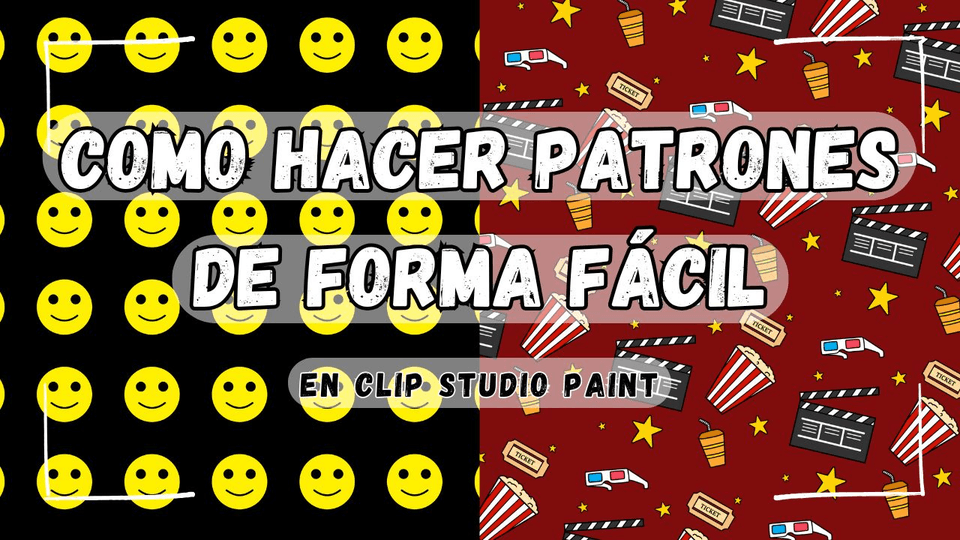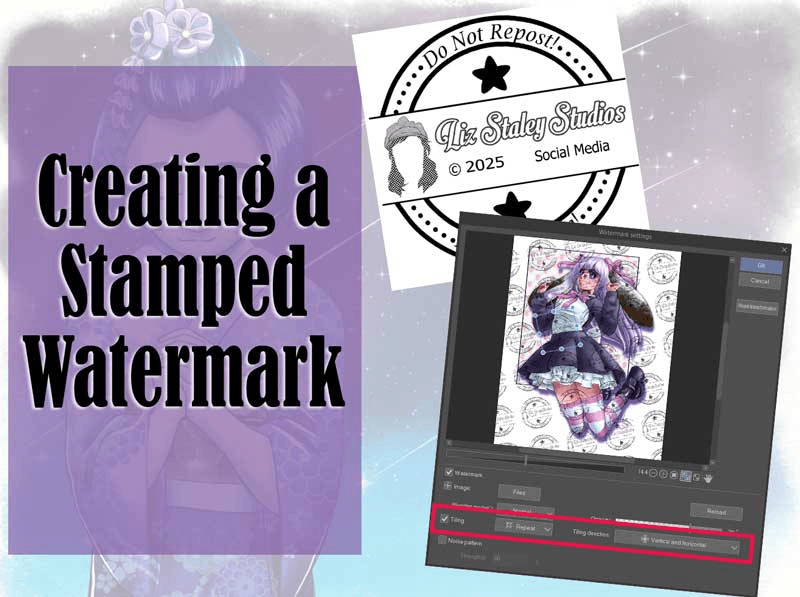Clip Studio Paint Hybrid Character Design
I. Introduction
The SpringTime is upon us. How in the world is that even possible?!! We are already in our 3 month of 2024, and I am itching more and more into fearing the Texas Heat making its return to this year! There is something about the extremes in weather that Texas loves to put its citizens in. Where it would be in the 40s one day and then tomorrow high 80s, causing me to befriend my zyrtec bottle because the frantic change of temperature is flapjaking my immune system. But NOW its the freakin pollen everywhere which is outside, god forbid I touch my car and rub my face. I instantly regret it within the first minute when my eyes start to puff up. Anywhoooooo enough of the rant time for business…
For the months of March, Alluring Calamity, moi will be participating in the Clip Studio Contest. So I decided to go with the Hybrid Character Design theme. I am a sucker for creating unique and fun designs for my OC. One of the big reasons why I wanted to be an animator. I loved the way you can learn about a character through their hairstyle, attire and color scheme. Which makes me determined to share with you some tools and techniques used on Clip Studio Paint to make my Hybrid Character Design. Let’s go!
II. General Rough Sketch with Pencil Tools
Now right off the bat you are going to be erasing a lot of your general sketches, it is okay. To not be sure about what your characters’ shape is going to be, keep brainstorming and running your pencil tool over the canva until you come across a form you enjoy resting your eyes on. I will be moving from my pencil tool to my move tool to get the most amount of space out of my character design.
Can you tell what creature and character I am meshing together to make the Hybrid?
I’ll give you a hint, I just created a general sketch of the Bell and Oral Arms. You’ve got this… Now you can’t miss it, I am adding in tentacles connected to the Bell.
Uhhhhhhh, Jellyfish Witch, lol.
So I am going back into the sketch to add some ruffles against the dress and bell of the young witch is wearing, did you know that jellyfish can only live for a year and a half in the wild, whereas in captivity it would be 6 months. So the life span of my witch is destine to be short but with her magic it keeps her living for generations.
I take it upon myself to duplicate the IMG, so I can move it to be side by side. On the right side I’ll be working on the general rough sketch of what the back of the Witch would be based on the IMG on the left side of the canva. Using my trusted kneaded eraser to eat away at the pencil tool markers to draw over where the new parts would be.
Once I am done I will lower the opacity of the sketches, in order to sketch over the drawing to create the general idea of the side profile of the character. The move tool really helps in a subtle way when it comes to moving parts of the Witch. Once were done we move it over to the other side of the canva to create room.
III. Color Scheme for the Design
Some additional stuff that I do, I went ahead and added some more space for the canva to fit the turnaround, and the relabeled my layers before putting them back into a folder. I then create another layer while its selected I go ahead and create an outline of the form with my thick oil paint tool you can honestly pick any base color to use. I just felt purple fit the theme. Once I have completed the trace, I’ll use the fill bucket tool to fill the open space within the sketch.Before switching over to the selection tool now this will keep any stray marks or effects from living the target area I have selected within my turnaround sketches. Now I can go in with my thick oil paint tool to add colors for the hair and skin using my on the fly color palette, I would even use the eyedrop tool to recollect colors that I have switched out to color in the other profiles on the canva. Then I will be adding colors for the clothes and breaking out of my selection tool to add the new additions to the palette on the canva.
IV. Time for the Effects, Blends, Effects, Blends, and Moreee
Now for the effects I will create another layer which I will change the effect from Normal to Multiply, and lower the opacity to make it clear enough to see through the editing process, this layer will be the shadows/shading of the Witch.
The next additional layer with the Multiply effect and Soft Air brush tool, this will provide a hazy shade over the composition of the design, areas that have a darker tone due to the layering of clothes or the bell over parts of the form that is not receiving any direct light.
Once I am done I will deselect the selection tool and start adding in the new colors of shade/shadow on the palette.
Time for the lighting, just like what I was doing for the shade/shadow. I will create a new layer, and change the effect for that layer to be color dodge before using the eyedrop tool to collect samples from the palette that was used for her skin. To apply direct hazy placements of light along the surface of the character, I made sure to use that lovely soft airbrush tool over the areas that are the most exposed to the sunsrays?
\
I’ll create another layer with a highly saturated cyan blue color selected, and the effect on soft light. I tried using the thick oil paint but the consistency of the medium was too bold for my liking so I switched over to a pencil tool to add glimmer highlights along the Bell and attire of the witch to give it the underwater halo. Then one of my favorite additions is the tentacles/stingers dangling from the bell of the witch, using the same Cyan color to give it that pop as well as touching up the dress with Cyan softlight. Before revisiting the tentacles by adding in the skin color in the lighting layer.
Finally combining all of the layers within the folder, creating a duplicate incase I need to revisit elements from my drawing that I was to pull from. Now I have two folders, one labeled current while the other is labeled back up. In the current layer I went ahead and started blending the many textures together with the thick oil paint tool making sure to keep the color mixing selected to give it that wet rich blend versus the starch bold mark.
\
Okay so I’ll be moving between the color mix being selected and not selected to apply pupils in the eyes and give it a more defined appearance.
Then I will collect some of the dark purple from the palette with the eyedrop tool, to use to blend the creases on the Witch from her hat resting on her head and then using the lighter pink to bring life back to the highlights. Now I am going to be switching between these two colors through this section of the video using the thick oil paint brush to really enhance the colors being shown in the design.
For this part I went ahead and opened the backup folder to pull out the layer for the tentacles/stingers to the current folder. Now I have the kneaded eraser with a lower opacity to feathery bring out the hidden texture to the surface that the backup brought when I moved it to the folder. I really wanted the rich saturation of the effects from the backup folder to make a return on the current folder.
V. Background Sheet Speedrun
To fit the theme of the jellyfish I erased parts of the characters form to give it the see through look before going into the background for the character design; we start off with a solid base color for the backdrop. Then create a new layer to place the horizon line for the centerpiece using the soft airbrush tool to give it a hazy destinati shot, keeping it all on its own layer. Adding a airy light layer for the above and below of the horizon line, switching over to the droplet tool and changing the opacity to be more transparent for both the white and blues. I’ll go in with a soft textured eraser to give that receded effect for the landscape I am trying to create in the background.
\
Switching over to the pointillism brush, I felt that it illustrated the texture of the ocean messing with the thickness and particle size helped to gauge the distances of the particles between each other as well as the size of them against the canva to give that ripple water effect.
With each of my layers I have a different purpose for them, in order to make sure that the effects do not overlap/overtake one another keeping them all in their own little folder before moving the characters turnaround sheets to the side and adding in some directional text.
Tadaaaa!
VI. Closing Remarks
We have reached the end comrades. How does it feel to know the baseline of Character Design in the scope of a Hybrid theme. Simply go with the flow when it comes to your workspace, art is built with fundamentals not rules, so while using Clip Studio paint find what makes you enjoy the process of art for your future masterpieces. Trust that using Clip Studio paint will allow for flexibility in the realms of tools that you can explore in the drawing process in order to bring your imagination to life on a canva. Remember that tools that you are uncertain about, anything you don't encounter as much doesn't mean that you shouldn't try to draw with them. I feel it's best to take it day by day as cheese and annoying as that may sound.
Consistent practice makes art that you can appreciate, and love for the development you've grown over time. Imma be joining yall on that boat too, so don't be shy scoot over. Remember that consistency builds progress, copy what you see, study what you copied, practice what you studied from imagination, construct what you observe, study what you observe, then practice what you studied. It was an absolute pleasure making this tutorial! Wish all of you artists good luck, and this has been AlluringCalamity.













留言